- Home
- Paul Christopher
The Lucifer Gospel Page 2
The Lucifer Gospel Read online
Page 2
“Think like an autumn leaf floating on a fast-flowing river,” Hilts cautioned philosophically as Achmed bullied his way into the city. “You’ll eventually get there, but not necessarily by the route you intended or the speed you thought you’d be going.”
The Nile Hilton was a late-50s monolithic slab and the first modern hotel built in Cairo. It sat like a giant pack of cigarettes blocking the view of the Nile on Midan Tahir, the overpopulated dead center of the city’s financial district and the place where, one way or the other, all that traffic was headed. Achmed dropped them off at the Corniche El Nil entrance, dumped their bags on the sidewalk, and promised to be back in forty-eight hours to take them and the rest of the expedition to the civil airport in the Imbaba district on the other side of the river. The young man gave them a brief nod, slammed his door, and drove back into the seething traffic in a blast of exhaust, horn blaring.
“Welcome to Cairo,” said Hilts. He helped Finn with her luggage and they checked in at the standard blonde oak and marble front desk. When they were done the pilot-photographer rode up with her in the elevator. “I’ll meet you at Da Mario’s in an hour,” he said, getting out on his floor. “I need a lasagna fix.”
“Da Mario’s?”
“The best Italian food in Cairo. It’s either that or Latex.”
“Latex?”
“It’s the hotel bar; very classy, believe it or not. They’ve got flavored vodka hookahs.”
“I’ll go for the lasagna.”
“Good choice. Da Mario’s, an hour.” The door slid closed. Finn rode up another two floors, found her room, and dropped her bags at the end of the bed. She went to the balcony and stepped out. The sun was setting now and the western horizon was a streaked bloody fog of dying light. It was the most sinister, most dangerous, most beautiful thing she’d ever seen, like looking at the memory of a battle fought long ago, or a vision of one yet to come. She thought about where she would be going the day after tomorrow—out there, six thousand years of history waiting just around the corner. She stayed for a moment, then turned away, her heart beating hard with excitement. She went back into her room and began to unpack.
3
Da Mario’s had old lamps, dark wood, and raffia-covered Chianti bottles. Very Egyptian-looking waiters wandered around with huge pepper grinders, inviting the guests to have pepper on any and everything. Somebody in a dark corner was playing “Che Sera, Sera” on a twelve-string Spanish guitar. Hilts was sawing his way through a vast plate of liberally peppered lasagna and Finn was working on a small salad. They were sharing one of the raffia-covered bottles of Chianti. Hilts was now wearing shorts and a plain red T-shirt, while Finn had changed into jeans and an NYU sweatshirt against the frigid air conditioning.
Finn took a bite of salad and shook her head. “My first meal in Egypt and it winds up being something I could get just as easily on Mulberry Street.”
“We could go out to a local joint and get you some nice bamya or maybe some shakshukat beed iskandarani if you wanted something light, but you’d spend the next three days on the toilet, if you’ll pardon my French.” He took a sip of wine and then continued attacking his lasagna. “The first rule about Egypt is don’t ever drink the water. The second is, don’t ever eat the food.”
“Is it really that bad?”
“It’s not a question of bad, it’s a question of acclimatization. The tap water here is what they cook with, what they mix their food with. Anything in the tap water is going to wind up in the food. They’re used to the particular bugs, you’re not. It’s pretty simple.”
“What about the dig?”
He shrugged. “You’ll probably be sick as a dog for a couple of days. And they’ll most likely boil the water. You’ll be okay.”
“The things my father never told me about the life of an archaeologist.”
“You’re L. A. Ryan’s kid, right?”
“That’s right. You knew him?”
“Knew of him. I resurveyed his original site in Mexico.”
“The one in Yucatan? All I can really remember were the spiders. The size of dinner plates.”
“That’s the one. Quintana Roo. Chan Santa Cruz. It was the first time they ever had an infrared survey done. Tricky flying.”
“You really have been everywhere.”
He grinned. “I get around.” His shoulders lifted and he took another sip of wine. “It’s a job.”
“What do you think about this one?”
“The job?” He shrugged again. I do know Rolf Adamson’s a bit of a flake.”
“All I read was the profile they did of him in Newsweek a while back. It’s the only thing the library at school had on him.”
“The reclusive billionaire thing?”
“I wonder how much of it’s true,” Finn said. “It made him sound like a cross between Bill Gates, Steven Spielberg, and Howard Hughes.”
“With a little of the guy who owns Virgin Records thrown in for good measure. Balloon flights around the world, trips to the South Pole and all that.”
“An adventurer who’s interested in archaeology,” said Finn. “Spending a million dollars financing a dig in the desert. He must have a serious side.”
“According to my sources he’s got a bee in his bonnet.”
“Who are your sources and what kind of bee?”
“A lady on a dig he ran last year in Israel. They eventually took away his permits. Originally it had to do with one of those fake ossuaries that have been making the rounds. He tried to smuggle one out of the country and he got caught. It turned out to be one of the phonies, but that didn’t change the intent. If he wants something he’ll get it, no matter what the cost or whether it’s legal or not.”
“So what’s the bee in his bonnet?”
“If you read the Newsweek profile you know who his grandfather was.”
“Some kind of big-time evangelist from the twenties.”
“Schuyler Grand. ’The Grand Army of God’s Final Hour of Redemption.’ They’ve written books about him. California’s first radio evangelist. The ABN, Angel Broadcasting Network. Made millions and invested it all in orange groves and made millions more. Then he lost his radio license because everyone was saying he was secretly a Nazi. Committed suicide on the morning of Pearl Harbor. Adamson’s tried to whitewash his reputation for years. Clear his name, resurrect his theories.”
“What does that have to do with the dig?”
“Among other things, Schuyler Grand was an amateur archaeologist. He believed all the pseudo-science the Nazis were spouting about master races, and he mixed it up with all sorts of other things, including the Holy Grail. His big pitch was that one of Christ’s disciples carried the Grail to America.”
“From what I was told we were digging up the remains of an old Coptic monastery at the Al-Kufrah oasis.”
“We are. The Italians dug there in the late thirties. A guy named Lucio Pedrazzi. They were looking for the monastery too.”
Finn smiled. “What aren’t you telling me?”
“Officially this is a dig at a Coptic monastery. But I know for a fact Lucio Pedrazzi was digging for the tomb of a specific Coptic monk. A man named Didymus. In both Hebrew and Greek it means the same thing—‘the twin.’ Better known as Thomas the Apostle, or Doubting Thomas. Apparently Pedrazzi had evidence that after the Crucifixion Thomas went west, into the desert, rather than east, to India.”
“It sounds like an Indiana Jones story.”
“Pedrazzi was working for Mussolini’s Italian Archaeology Mission in Libya. There’s another story that says the monk in question wasn’t Thomas at all. It was Christ himself, mysteriously disappeared from his own tomb with the help of a Roman legionary. Pedrazzi was trying to prove that the Roman legionary was part of the so-called Lost Legion. When Christ actually died years later the legion were in charge of his bones. They took them to some sort of lost city in the desert. According to Mussolini that gave him some sort of leverage with the Vatican. Crazy s
tuff. Pedrazzi disappeared in the middle of a sandstorm and was never seen again.”
Finn looked skeptical. “I still don’t see what any of this has to do with Rolf Adamson.”
“Supposedly the legionary finally took the bones to America for safekeeping, which fits in with even more pseudoscientific stuff about ancient pyramids in Kansas and Egyptian galleys rowing down the Mississippi—after all, your average savage red Indian couldn’t have built all those huge burial mounds, now could he? Racist horse crap, but lots of people believe it.”
“And you think Adamson does?”
“I think Adamson’s paying the freight. I’m a pragmatist. Jobs are scarce.” He paused and took another sip of wine. He put down his glass and leaned against the back of the booth. “What about you?”
“Like you said, jobs are scarce.” She fiddled with her own glass. “Besides, an adventure is an adventure.”
“Which you seem to be in favor of.”
“What do you mean?”
“Don’t be bashful. How many Finn Ryans, daughter of renowned archaeologist Lyman Andrew Ryan, are there? You were all over the papers last year with that caper of yours under the streets of New York.”
“It wasn’t just me.”
“No, it was you, the bastard son of a Pope of Rome, and the grandson of Mickey Hearts, your bigger-than-average New York mobster from the good old days. Not to mention a broad assortment of dead bodies and about a billion dollars’ worth of looted art. And now you turn up here. Speaking of which, how exactly did you get the job?”
“I was recommended.”
“By the young Mickey Hearts?”
Finn bristled. “His name is Michael Valentine and he’s a book dealer, not a mobster. There is no mob anymore.”
Hilts laughed. “Who told you that, your Mr. Valentine?” He shook his head. “You know that old story about the Devil—that the smartest thing he ever did was convince the world that he didn’t exist? Pretty slick. Everybody talks about the Russians and the Japanese and the Hong Kong Triads but nobody talks about the Mafia anymore.”
Finn was about to continue the argument but then saw the twinkle in Hilts’s eye. “You’re teasing me.”
“Not really. Michael’s a friend of mine too. He asked me to look out for you. He’s not too happy about some of the people Rolf’s involved with.”
“You know Michael?” She could feel herself getting angry. She and Michael had briefly been lovers, but she didn’t like the feeling that she was being patronized.
“We’ve done each other a few favors.”
“I don’t need a babysitter, Mr. Hilts.”
“I don’t intend to be one, Ms. Ryan. Michael just asked me to watch your back, that’s all.”
“I don’t need that either.”
“The desert’s a big place, Finn. I could use a friend on this expedition myself.” He held a hand out across the table. “Peace?”
Finn hesitated for a moment, then shrugged. She valued her independence, but she’d also learned the hard lesson that there was sometimes strength in numbers. A friend in a strange land like this couldn’t do any harm. She shook the offered hand. “Peace.” She went back to her salad for a moment as Hilts finished his meal. “So when do we meet our benefactor?”
“He’s already on-site. We’re waiting for a late addition to the group and then I fly us out to Al-Kufrah the day after tomorrow.”
“Who’s the mystery guest?”
“A Frenchman named Laval. He’s a specialist in Coptic inscriptions from l’École Biblique in Jerusalem.”
“A priest?”
“A monk.”
“Could be interesting.”
“Could be very interesting,” said Hilts. “There was a monk from the same school on Pedrazzi’s expedition back in the thirties. A man named DeVaux. He was with Pedrazzi when he disappeared. Maybe this guy Laval is interested in more than just scrawls on a wall.”
Finn laughed. “How do you know all this stuff?”
“I like to know who I’m working with and I’ve got a lot of time to read on long flights.” He cocked an eyebrow. “And I’m also an amateur conspiracy theorist. Show me a mystery and I’ll connect it to the disappearance of Jimmy Hoffa and the Kennedy assassination.”
“When does the mystery monk arrive?”
“Late tomorrow night.”
“I guess I can play tourist for one day.”
“I’m doing a photostory for National Geographic Traveler. Why don’t you come along?”
“Where are you going?”
“The City of the Dead. The liveliest cemetery in the world. You’ll love it.”
4
In the immense, ancient, and melodramatic sprawl that is the city of Cairo, there are five major cemeteries that were once located on the eastern edges of the city beneath the Muqattam Hills, but which had been absorbed by the ever-growing metropolis many years before. In the old way, in a time when the family of the departed would mourn beside the grave for forty days and nights, the tombs for even the most modestly endowed were provided with small shelters for the living, while great mosques and death houses were built by the rich and the important. Streets and alleys between and around the graves and monuments appeared, and eventually the five cemeteries beneath the hills became known as the City of the Dead. In the second half of the twentieth century overcrowding, immense poverty, and a population that grew by a thousand a day forced the living into the confines of the dead. Over the years a city within a city grew until the cemeteries were occupied by more than a million desperate souls, all of them surviving without heat, electricity, or sanitation.
It was Friday, the Muslim holy day, and the streets of Cairo were almost empty of traffic, a nearly miraculous change from Finn’s arrival. She waited under the shaded entrance to the hotel, looking out across the square. On the left was the old Museum of Antiquities, already under siege by the occupants of a dozen tour busses parked out front. To the right was the sand-colored slab of the Arab League headquarters, and directly across the square was the entrance to the Cairo Bus Station.
Following Hilts’s advice about local customs, Finn had dressed carefully, wearing loose linen pants and an equally unrevealing green silk top. She’d tied her hair back in a scarf, hiding everything, including her bangs. She wore a plain pair of North Face hiking boots and her favorite drugstore sunglasses. She’d left her passport with the front desk, had nothing but her international driver’s license for ID, and carried only five hundred Egyptian pounds, less than a hundred dollars. She’d left her digital camera locked in her suitcase under the bed and picked up a disposable Fuji in the hotel gift shop. According to Hilts, the trick about a trip to the City of the Dead was to make sure you didn’t appear to be worth mugging, raping, or killing.
A thundering roar broke into the relative peace of the morning and Finn saw a huge black motorcycle turn into the square from the Nile side and rumble toward the hotel entrance. The rider stopped directly in front of her and pulled off his dark, full-visor helmet. It was Hilts. He was wearing motorcycle boots, jeans, and a T-shirt that read “Harley-Davidson Egypt” on the front. The name on the side of the motorcycle spelled out Norton. He reached back and handed Finn a helmet.
“Hop on.”
“I thought we were supposed to be keeping a low profile.”
“Sometimes fun takes precedence over good sense. I don’t get to ride bikes much anymore.”
“You’re crazy,” she said, slipping on the helmet and buttoning the chin strap. Suddenly the world was the amber color of the visor.
“That too,” he said and grinned. She climbed on the bike behind him, put her arms around his waist, and they were off.
5
They rode through the smoky fog of pollution along the Corniche El Nil, then turned away from the river and the Island of Rhoda along the wide and almost empty Salah Salim highway. To the right was vacant waste ground and abandoned building sites; to the left was Telal Zenhom, a district ravaged
by the massive earthquake in 1992. It was all like some sort of arid Blade Runner. Heavy electrical cables ran like thick black snakes across rooftops and TV antennas drooped from minarets.
They turned off Salah Salim at the Al-Qadiraya exit and slowed as they moved steadily deeper into the intricate web of roads and alleys that made up the crumbling, foul-smelling necropolis. Within seconds Finn was completely disoriented, lost in a sea of tombs and tombstones.
They stopped. Ahead of them was a broad circular mosque, teardrop-shaped windows exquisitely carved into the old white stone. To one side of the mosque, built on the roof of a large, thick-walled death house, was a ramshackle assembly of crates and boxes, looking more like a chicken coop than a place suitable for human habitation. Finn climbed off the motorcycle and slid her helmet off. Instantly her eyes began to sting. Here the pollution was even heavier, made worse by a thick, clinging fog of gray-white dust that began to clog her nose and mouth. Hilts reached into the pouch at his waist, took out a surgical mask and handed it to her. She slipped it on gratefully.

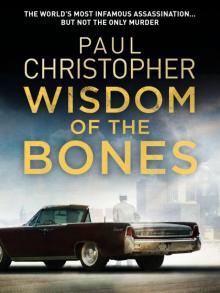 Wisdom of the Bones
Wisdom of the Bones The House of Special Purpose
The House of Special Purpose The Second Assassin
The Second Assassin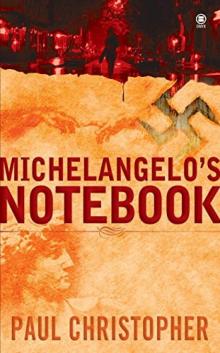 Michelangelo's Notebook
Michelangelo's Notebook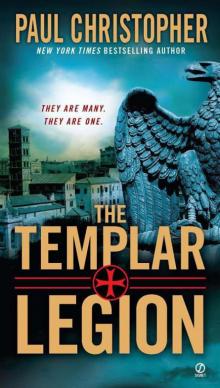 Templar Legion
Templar Legion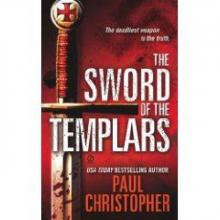 The Sword of the Templars t-1
The Sword of the Templars t-1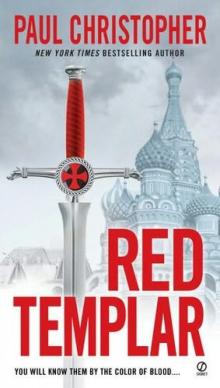 Red Templar
Red Templar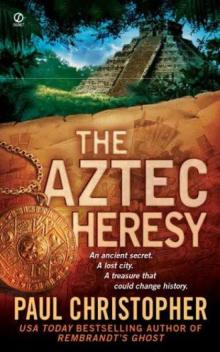 The Aztec Heresy
The Aztec Heresy The Templar Legion
The Templar Legion Rembrandt's Ghost
Rembrandt's Ghost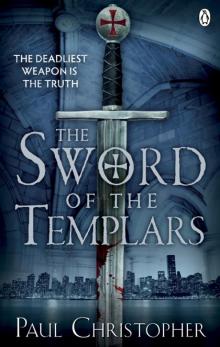 Sword of the Templars
Sword of the Templars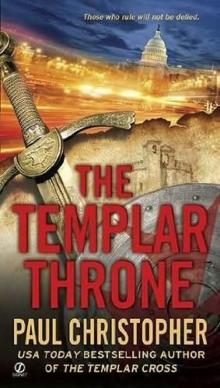 The Templar throne t-3
The Templar throne t-3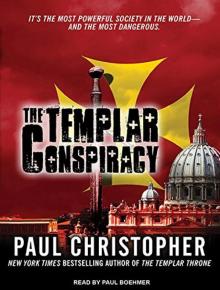 The Templar Conspiracy
The Templar Conspiracy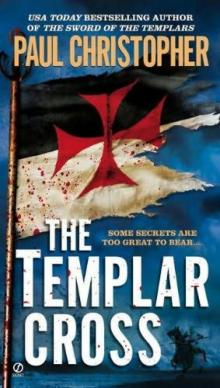 The Templar Cross t-2
The Templar Cross t-2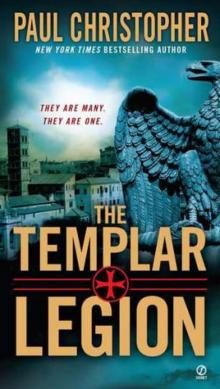 The Templar Legion t-5
The Templar Legion t-5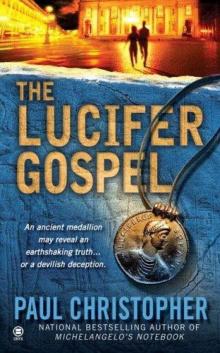 The Lucifer Gospel
The Lucifer Gospel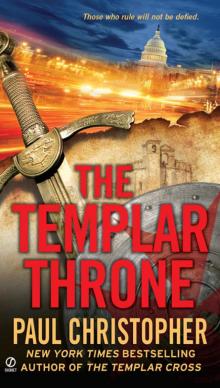 Templar Throne
Templar Throne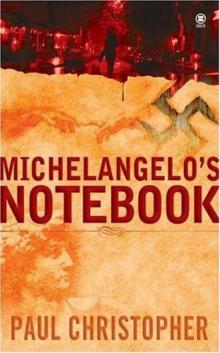 Michelangelo_s Notebook fr-1
Michelangelo_s Notebook fr-1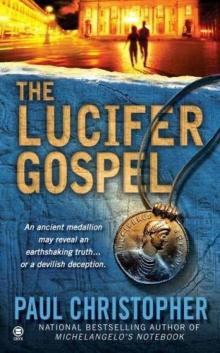 The Lucifer Gospel fr-2
The Lucifer Gospel fr-2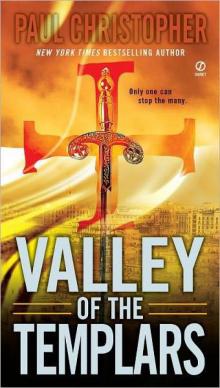 Valley of the Templars ts-7
Valley of the Templars ts-7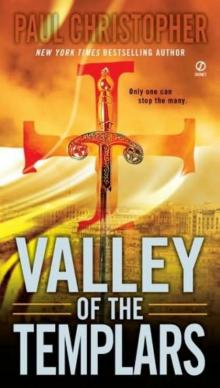 Valley of the Templars
Valley of the Templars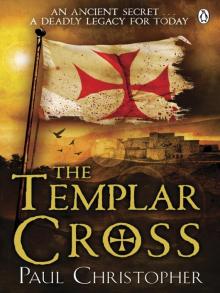 Templar Cross
Templar Cross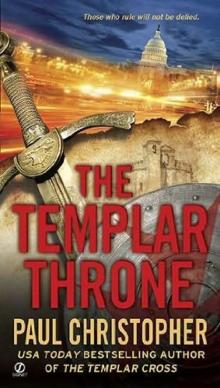 The Templar Throne
The Templar Throne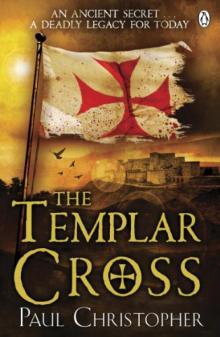 The Templar Cross
The Templar Cross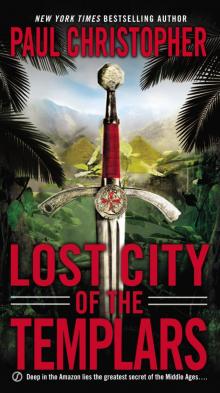 Lost City of the Templars
Lost City of the Templars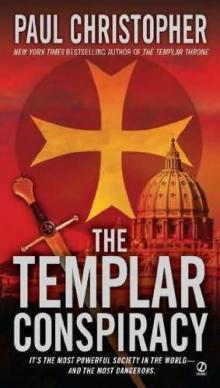 The Templar conspiracy t-4
The Templar conspiracy t-4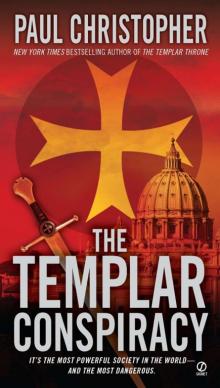 Templar Conspiracy
Templar Conspiracy